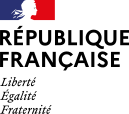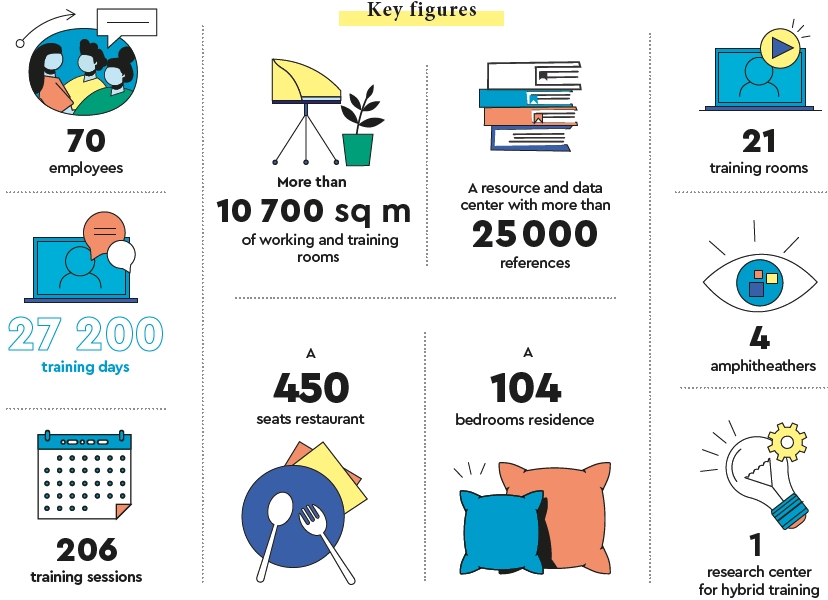About the Institute
1. Reaching out to our target public
- A key player in contributing to developing the skills and ensuring the professional adaptation of educational and administrative managers working in Établissements Publics Locaux d’Enseignement (state secondary schools), the IH2EF is in charge of both the initial and continuing training of managerial staff, school inspectors and administrative officers, school doctors and other specific groups.
- Its services are also aimed at the managerial staff of higher education establishments, including such functions as: DGS (vicechancellor), DRH (HR director), DAJ (legal services director), DAF (financial director), DSI ( director) and director of facilities management and new groups, such as the directors of other institutions that are part of the university, notably the INSPE (postgraduate teacher training institute) and the CROUS (in charge of grants, halls of residence, university restaurants, etc.)
2. Adapting to public education policy
- In its role as a provider, the IH2EF directly contributes to a dynamic process that aims to improve the quality of the personnel.
- As a member of the RESP (a network of public administration training institutions), the IH2EF provides an array of services in the field of training and professional development, all of which are in line with those of other state-approved providers and the needs of its different publics. The analysis of these needs is supported by a regular dialogue with administrative departments on a national level, local and regional education authorities and professional associations.
- In developing its training programmes, the institute integrates a scientific approach and increasingly resorts to digital tools with a view to continuous improvement, whilst respecting the habits, practices and expectations of its users.
3. Putting digital tools at the heart of pedagogical philosophy
- In light of the profile of its trainees (who are in general well versed in this domain) and their specific requirements, the institute favours an active, experiential pedagogy in which digital tools quite logically have a key place.
- By opting to favour tutored learning the institute can, whilst respecting the fundamental pedagogical principles, offer both hybrid and 100% dematerialised distance-based solutions, in other words with face to face and/ or distance learning sessions that call upon multiple methods for acquiring knowledge and developing skills (conferences, workshops, debriefing, evaluations etc).
These massive online courses in no way preclude individualised training programmes, nor an individual follow-up of the trainees and the desired support for individual career paths.
4. Questioning the french education system and building bridges with civil society
- Thanks to the implementation of an annual "auditors" cycle, the institute gives managers working in central and regional administration, associations and private companies the opportunity to question the education and training system from the inside and bring a constructive and objective perspective to bear on its functioning and efficiency.
- The choice of a promising news topic selected with the assistance of the members of the Scientific Council constitutes the starting point for a collective reflection. Co-developed with the host education authorities, this course spread over a 12-month period includes two study trips.
- It is based on an alternative pedagogical approach with high level inputs. The auditors’ investigations end with the submission and presentation of a key findings report (which includes their recommendations) to the Minister of Education, Youth and Sport and the Minister of Higher Education, Research and Innovation.
5. Benchmarking and a new outlook on the education issues
- Adopting a forward-looking dynamic, the institute develops its expertise by benchmarking practices on a European and international level, as well as by means of partnerships that ensure the transfer of knowledge to practitioners.
- It also endeavours managers to open their eyes/minds to other educative systems and facilitate access to the findings of international research on the question. The training programmes often enlist input from research lecturers and specialists from partner countries.
- The institute’s expertise is also called upon in the framework of cooperation agreements, in particular to welcome foreign delegations as part of a knowledge sharing process and to co-ordinate mobility (exchanges with the Erasmus+ Agency, visits by experts for the development of given educational policies and promoting the successes of the French education system).
Poitiers Capital of Education and Training
"Poitiers capitale de l'éducation et de la formation"
Since 2017 Poitiers has been the Capital of Education and Training. Indeed, it gathers around the technopole several big institutions :
- IH2EF : Institut des Hautes Etudes de l'Education et de la Formation (Institute of Higher Education and Training)
- Réseau Canopé (Canopé Network)
- CNED : Centre National de l'Éducation à Distance (National Center for Distance Education)
- Académie de Poitiers (local authority for Education - Poitiers region)
- University of Poitiers
- SPN : réSeau des Professionnels du Numérique (network of digital professionnals)
It is around a digital strategy that these big names work and complement each other.
Poitiers and surroundings
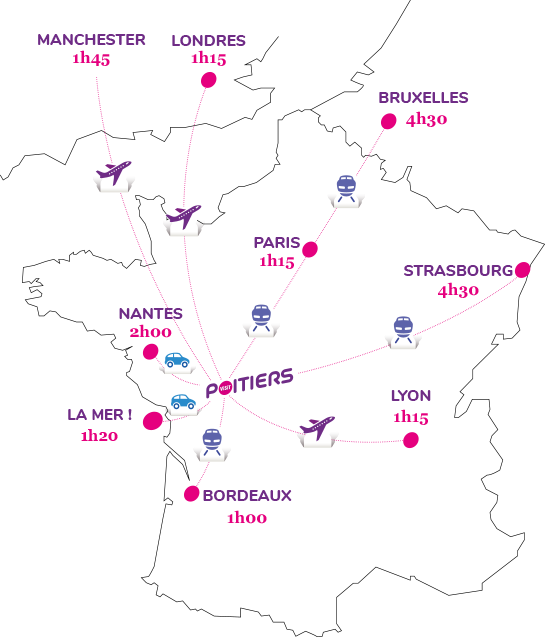
Poitiers city
You can find differents and several activites to do in Poitiers and surroundings.
Access the website
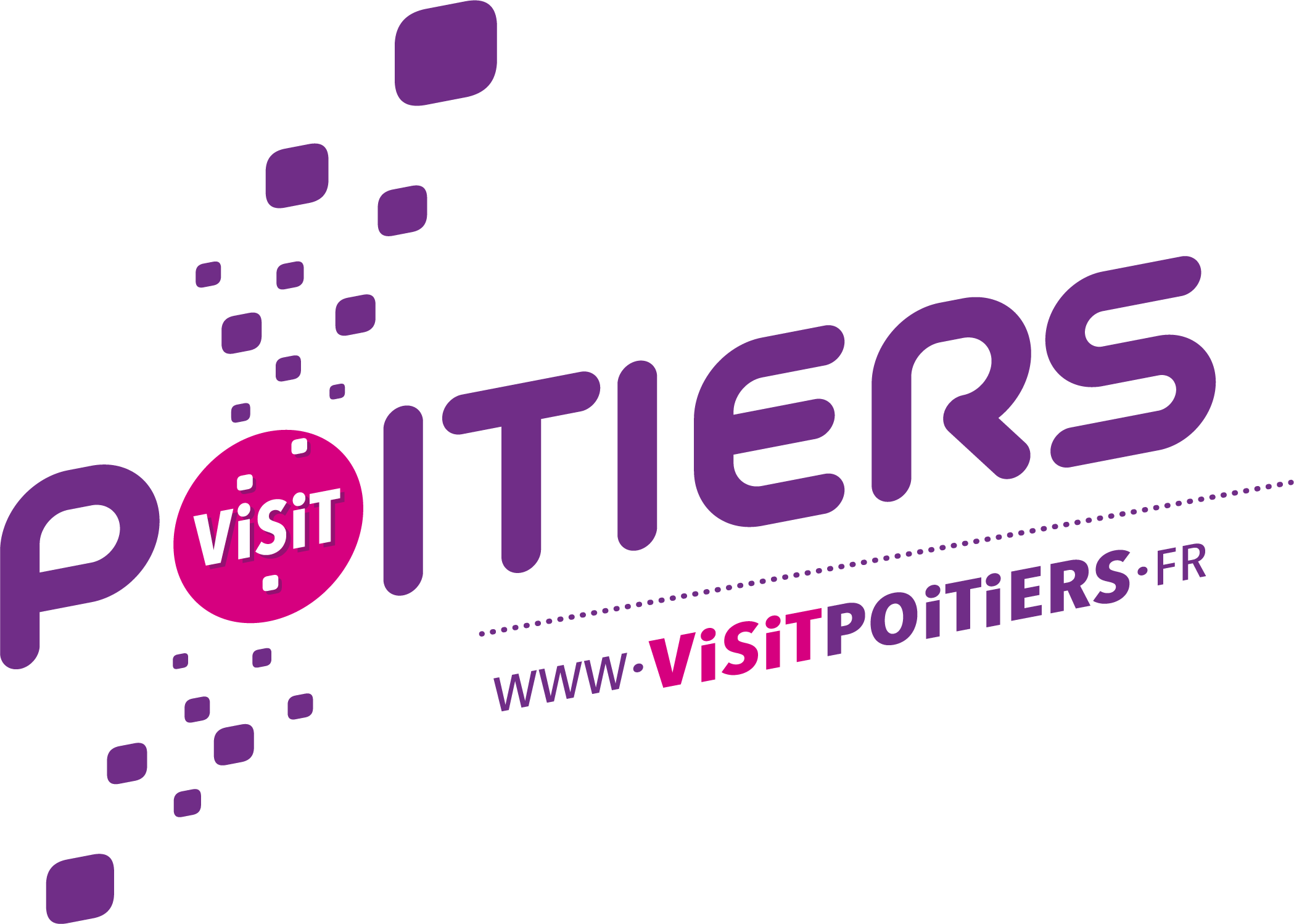
Futuroscope park
Theme park based upon multimedia, cinematographic futuroscope and audio-visual techniques. With journeys, thrills and fun games, there'll be something for everyone of all ages to enjoy !
Access the website
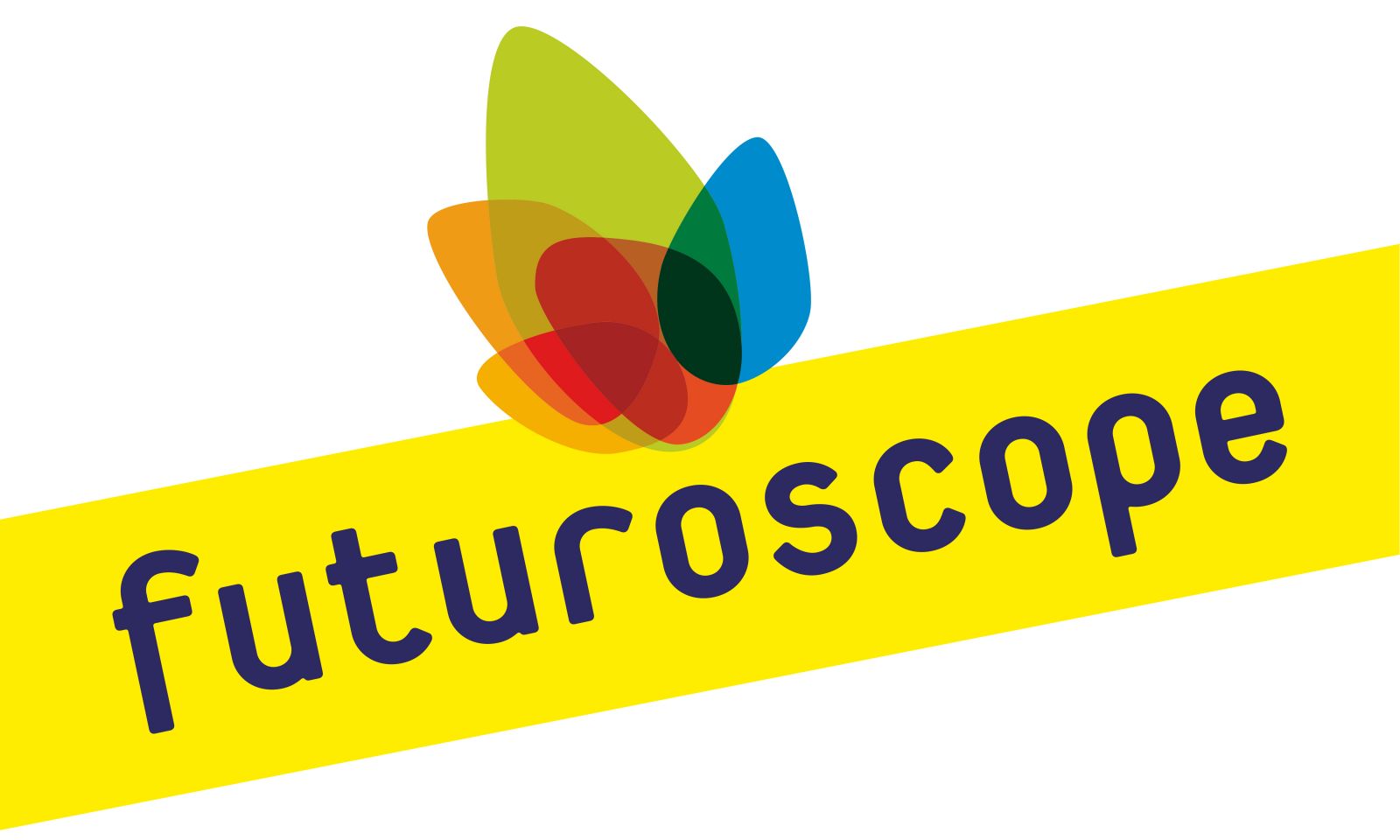
Charente & Charente-Maritime
Cognac : it is a variety of brandy named after the commune Cognac. It is produced in the surrounding wine-growing region in the departments of Charente and Charente-Maritime (less than 2 hours from Poitiers)
La Rochelle : you can also visit La Rochelle and see the ocean because it is situated on the edge of the Antlantic Ocean and connected to the Ile de Ré by a 2.9-km (1.8-mile) bridge.
Access the website
Coming to IH2EF
Welcome to IH2EF
If you come for several days, there are different hotels around the location,
and the Institute actually has its own residence with 104 rooms and its own administrative restaurant.
Address : Téléport 2 - Boulevard des frères Lumière - BP 72000 - 86963 Chasseneuil Futuroscope Cedex
Phone : +33 5.49.49.25.00
The Institute is located near the Futuroscope, on the Paris/Bordeaux axis : RN10 or A10
GPS coordinates : N46° 39' 47'' (46.66322) ; E 0° 21' 27'' (0.35752)
Arriving from the plane : Poitiers-Biard Airport is located northwest of Poitiers, 10km from the IH2EF.
Daily flights exist from London until June 2021.
